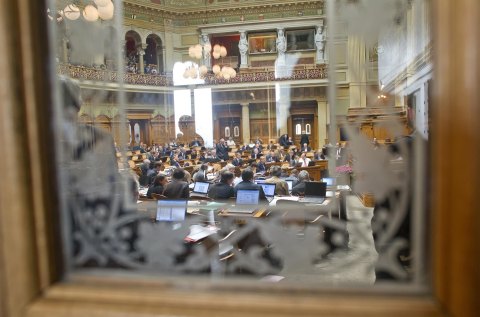Mocking religious beliefs remains a criminal offence
The National Council clearly rejects the abolition of the blasphemy article. Religious feelings, unlike political convictions, for example, continue to enjoy special protection. Switzerland is failing to set an example of freedom of expression with an international impact.

Article 261 of the Swiss Criminal Code criminalises the mockery of "the religious convictions of others, and particularly their belief in God". The same applies to the "desecration" of objects or places "intended for a religious ceremony or an act of worship the conduct of which is guaranteed by the Constitution". Only religious beliefs, objects and places enjoy such protection in the Criminal Code. But are they really more worthy of protection than, for example, political convictions?
The National Council thinks: yes. It rejected the motion to abolish the ban on blasphemy on 30 October 2020 by 115 votes to 48 with 12 abstentions. The motion was submitted by GLP National Councillor Beat Flach in December 2018, based on a resolution of the Swiss Freethinkers. Flach argued that the Criminal Code is offering sufficient protection to religious communities and other groups even without blasphemy articles - and sufficient means for the rule of law to convict perpetrators.1
But the arguments were practically only heard in the National Council by the Greens and Green Liberals. While here practically all members of the parliamentary group agreed to abolition, the FDP, SVP and the centre group only received one yes vote. Among the Social Democrats, one quarter voted in favour and another quarter abstained.
Missed opportunity
The issue would be more important than ever - not least in view of the brutal murder of the French teacher Samuel Paty in mid-October, which must be seen as a clear attack on the freedom of expression. And it would have been all the more important, especially in these times, to set an example for freedom of expression - also at the political level. After all, the abolition of the ban on blasphemy is not only important for its internal effect in Switzerland, but also sends a clear and necessary signal to those states that use blasphemy bans to persecute religious minorities and secular activists. Countries like Pakistan, Saudi Arabia and Russia like to justify their legislation by referring to blasphemy bans in Western states.
This is an opportunity that the National Council has now missed by rejecting the motion. The Freethinkers will continue to campaign for it - and from January 2021 they will do so with more resources for political activities.
